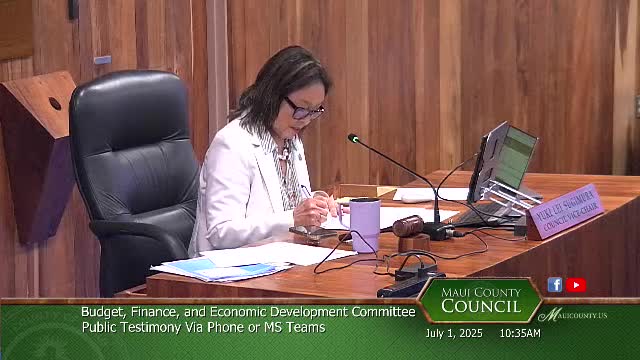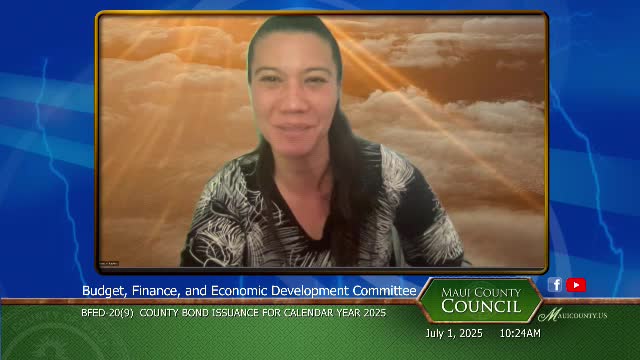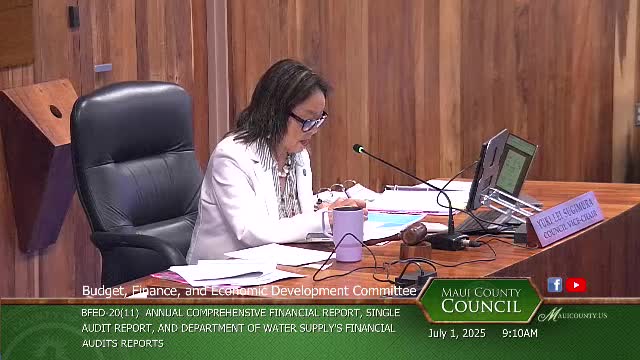Article not found
This article is no longer available. But don't worry—we've gathered other articles that discuss the same topic.

Royal House of Hawaii testifies to Maui County committee, asserts royal patent title claims and urges contact of beneficiaries

Maui County plans $300 million GO bond sale in August 2025; officials say credit ratings appear stable

